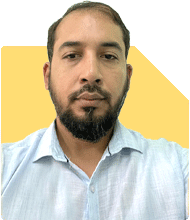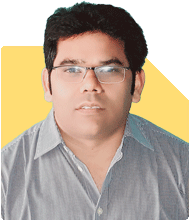Jobless at 46 with 30 Lakhs Savings: What's Next?
Ramalingam Kalirajan |10876 Answers |Ask -Follow
Mutual Funds, Financial Planning Expert - Answered on Aug 22, 2024
He has an MBA in finance from the University of Madras and is a certified financial planner.
He is the director and chief financial planner at Holistic Investment, a Chennai-based firm that offers financial planning and wealth management advice.... more

Hi madam good evening I am 46 I was working in abroad for last 20 years & now' I am jobless suggest me with the best plan I have savings off 30 lack
Emergency Fund Allocation
First, set aside a portion of your savings as an emergency fund. This fund should cover at least 12 months of living expenses.
Safety Net: This fund will ensure you’re covered for unexpected expenses. Keep this money in a safe and liquid investment.
Where to Park: Consider options like savings accounts or liquid mutual funds. They offer easy access when needed.
Investing for Regular Income
Your primary goal should be to generate a regular income from your savings. This will help you meet daily expenses without dipping into your principal amount.
Debt Funds: Consider investing in debt mutual funds. They offer stability and regular returns, with lower risk.
Systematic Withdrawal Plan (SWP): You can set up an SWP from your debt funds. This will provide a regular income while keeping your principal intact.
Planning for the Future
While generating income now, it’s also important to think about your long-term future. You’ll need to grow your savings to ensure a comfortable retirement.
Balanced Funds: Consider investing a portion of your savings in balanced funds. They offer a mix of equity and debt, balancing risk and return.
Equity Funds: With a long-term horizon, equity funds can be considered. They have the potential to generate higher returns, helping you beat inflation.
Health Insurance Considerations
Given your age and current situation, health insurance is crucial. Ensure you have adequate coverage to avoid dipping into your savings for medical expenses.
Review Existing Coverage: Check if you have health insurance. If not, consider buying a comprehensive policy.
Consider Critical Illness Cover: It might be wise to add critical illness coverage. This will help cover costs for serious health issues.
Skill Development for Future Employment
While managing your finances, consider upskilling yourself. This will improve your chances of re-entering the job market or even starting a new career.
Online Courses: Invest time in online courses to update your skills. This will enhance your employability.
Consulting or Freelancing: Consider leveraging your experience for consulting or freelancing work. This can generate additional income.
Estate Planning
As you focus on your financial stability, it’s also important to consider estate planning. This ensures that your assets are managed and transferred according to your wishes.
Draft a Will: Make sure you have a will in place. This avoids legal complications and ensures your assets are distributed as you wish.
Nominate Beneficiaries: Ensure all your investments have correct nominations. This will make the process smoother for your heirs.
Reviewing Your Plan Regularly
Financial planning is not a one-time task. Regularly review your plan to ensure it remains aligned with your needs and market conditions.
Annual Review: Review your financial plan annually. Adjust based on your changing needs or any new opportunities.
Market Conditions: Keep an eye on market trends. Make adjustments to your portfolio as needed to stay on track.
Final Insights
At this stage in your life, careful planning is key to ensuring financial stability. By securing a regular income, planning for the future, and taking care of your health, you can navigate this transition smoothly.
Emergency Fund is Crucial: Protect your savings by setting aside enough for emergencies. This is your financial safety net.
Income Generation: Focus on creating a stable income stream. This will help you meet your daily expenses without depleting your savings.
Plan for Growth: While securing your present, don’t forget to invest for the future. Balanced and equity funds can help grow your wealth.
Best Regards,
K. Ramalingam, MBA, CFP
Chief Financial Planner
www.holisticinvestment.in
You may like to see similar questions and answers below
Mayank Rautela | Answer |Ask -Follow
HR Expert - Answered on Feb 18, 2024
Aasif Ahmed Khan | Answer |Ask -Follow
Tech Career Expert - Answered on Jul 02, 2024
Ramalingam Kalirajan |10876 Answers |Ask -Follow
Mutual Funds, Financial Planning Expert - Answered on Aug 02, 2024
Onkar Singh | Answer |Ask -Follow
Career Management, Skills Development Expert - Answered on Sep 02, 2024
Prof Suvasish Mukhopadhyay | Answer |Ask -Follow
Career Counsellor - Answered on Jan 10, 2025
Shalini Singh |180 Answers |Ask -Follow
Dating Coach - Answered on Dec 10, 2025
Radheshyam Zanwar |6740 Answers |Ask -Follow
MHT-CET, IIT-JEE, NEET-UG Expert - Answered on Dec 09, 2025
Naveenn Kummar |234 Answers |Ask -Follow
Financial Planner, MF, Insurance Expert - Answered on Dec 09, 2025
Ramalingam Kalirajan |10876 Answers |Ask -Follow
Mutual Funds, Financial Planning Expert - Answered on Dec 09, 2025
Ramalingam Kalirajan |10876 Answers |Ask -Follow
Mutual Funds, Financial Planning Expert - Answered on Dec 09, 2025
Radheshyam Zanwar |6740 Answers |Ask -Follow
MHT-CET, IIT-JEE, NEET-UG Expert - Answered on Dec 09, 2025
Radheshyam Zanwar |6740 Answers |Ask -Follow
MHT-CET, IIT-JEE, NEET-UG Expert - Answered on Dec 09, 2025
Nayagam P P |10853 Answers |Ask -Follow
Career Counsellor - Answered on Dec 09, 2025
Mayank Chandel |2569 Answers |Ask -Follow
IIT-JEE, NEET-UG, SAT, CLAT, CA, CS Exam Expert - Answered on Dec 08, 2025
Mayank Chandel |2569 Answers |Ask -Follow
IIT-JEE, NEET-UG, SAT, CLAT, CA, CS Exam Expert - Answered on Dec 08, 2025



























